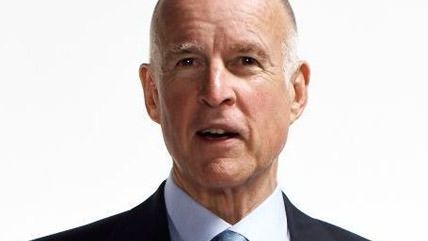A Welcome Softening of California's Tough-on-Crime Approach
Stay tuned. If Proposition 47 passes, it will be another sign that the days are over of winning political points by promising to execute teens.

SACRAMENTO — After moving to California in 1998 during the last months of a governor's race pitting Lt. Gov. Gray Davis against Attorney General Dan Lungren, I was shocked to find that my Midwestern notion was off about my new state's politics. The debate sounded like it belonged in Alabama.
Democrat Davis and Republican Lungren were trying to outdo each other on who would more harshly punish criminals. "(Davis) would give judges discretion to sentence 14-year-olds to death; he would let them consider supporting non-unanimous jury verdicts," reported The New York Times. "He considered Singapore – a country that executes drug offenders – 'a good starting point.'"
Sixteen years later, Californians are in the midst of another governor's race, but crime-and-punishment hasn't grabbed much attention — even after a federal judge in July tossed out the state's death penalty. And even though the governor's "realignment" plan (sending state prisoners to county jails) has caused real problems.
Times have changed. Indeed, an initiative on the November ballot would reduce prison sentences for certain minor felonies. It's even getting support from people who previously were part of the tough-on-crime coalition. Proposition 47's top individual funder, for instance, is a conservative Republican businessman from Malibu, B. Wayne Hughes Jr.
In recent years, Hughes has become active in former Nixon official Charles Colson's prison ministry — and visited Louisiana State Penitentiary at Angola, which had been known in the 1970s as one of the roughest prisons in the country.
Today's Angola now is one of the most trouble-free prisons — and he credits this to Colson's seminary program there. When Hughes came back to California from his Louisiana trip, he found that such a program was only serving 50 prisoners here at two prisons. He expanded the program to 1,000 inmates in 22 prisons. He also started a social-service program that ministers to ex-cons, crime victims and veterans at a ranch he owns on the Central Coast.
"As a result of going to the prisons … I got noticed by some of my friends on the left side of the aisle," he said in a recent interview. "They said, 'we have this initiative and it seeks to take the six least egregious felonies … and take it out of the felony column and put it in the misdemeanor column.' …" He eagerly embraced the idea.
As the legislative analyst explained, "This measure reduces penalties for certain offenders convicted of nonserious and nonviolent property and drug crimes. The measure also allows certain offenders who have been previously convicted of such crimes to apply for reduced sentences." State and counties could save hundreds of millions of dollars annually, with the saved money spent on various truancy, mental health and substance-abuse programs, according to the analysis.
"We're broke in California," Hughes added. "We can't afford to do this. We can't afford to go ahead and take these low-level offenders … and spend $62,000 a year and lock them up. Most of them have families and every time you lock somebody up every bad thing that can happen to their families, like not graduating from high school or early pregnancy or trouble with the law by other family members — all those percentages go through the roof."
Hughes isn't the only surprising supporter. The San Jose Mercury News interviewed the widow of a policeman killed in the line of duty who has become a public supporter of the measure. It's backed on the ballot statement by law-enforcement officials including Bill Landowne, San Diego's former chief of police.
Hughes hasn't seen much opposition rise against it yet. The official ballot argument against it, however, was written by leaders of major law-enforcement unions and associations. They argue that it is "a dangerous and radical package of ill-conceived policies wrapped in a poorly drafted initiative, which will endanger Californians."
If this were 1998, I'd have no doubt that such arguments would kill it. But a lot has changed since then. Violent crime rates have plummeted and the state still struggles to comply with a federal court order to reduce prison overcrowding. Stay tuned. If Proposition 47 passes, it will be another sign that the days are over of winning political points by promising to execute 14-year-olds.


Show Comments (10)